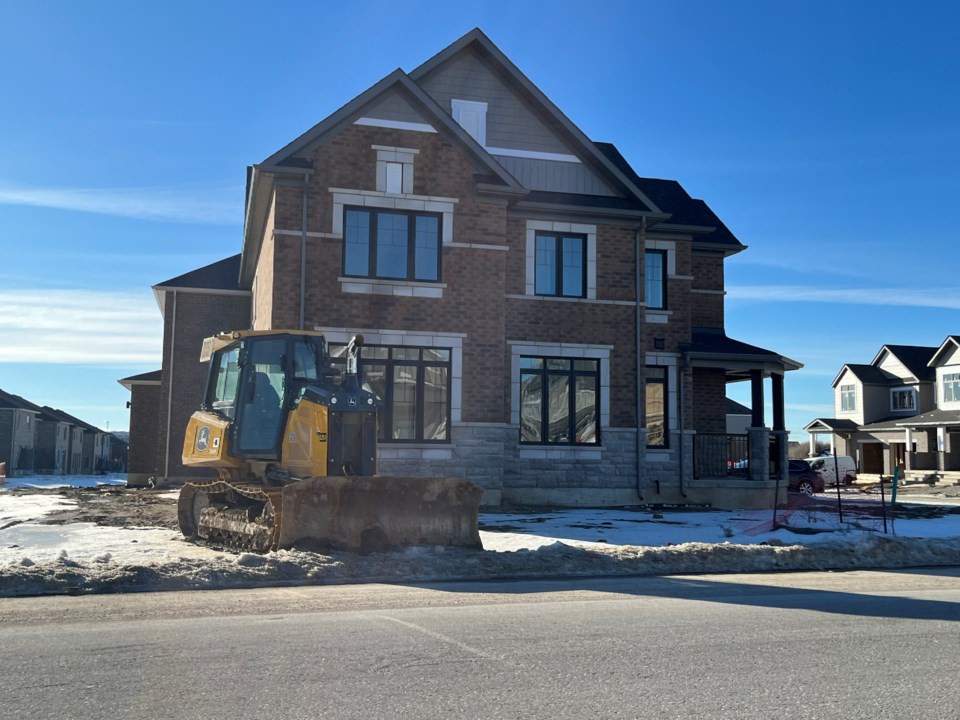Permitting as many as four residences on one property could soon be the norm in Barrie.
City councillors will consider a motion Wednesday night to change the zoning bylaw to permit four such units, an increase from three allowed now, on residential land city-wide.
The potential impact of these additional residential units depends upon who you ask.
“The addition of these units as-of-right will only occur on oversized, under-utilized properties,” said Coun. Sergio Morales. “If you can smell what your neighbour is barbecuing, your properties likely don't qualify for this.
“Existing Barrie homeowners will now be able to leverage their property to improve their family's financial security by generating more housing for their community,” he added. "All these decentralized mom-and-pop home generators will start adding important units that will start making an impact roughly 18 months after the policy implementation.”
The Ward 9 councillor says Barrie residents who lack the correct housing for their specific situation will no longer have to wait for large-scale developments that take three to five years to add housing supply to the market.
Coun. Clare Riepma, who represents Barrie’s east end, has a different take on permitting four units.
“While we want to welcome more people to our neighbourhoods, increase diversity and reduce urban sprawl, we also want to protect the unique and wonderful characteristics of our existing neighbourhoods,” said the Ward 1 councillor. “It is very important that any units permitted fit into the neighbourhood and contribute to the community.
“When we changed the zoning bylaw to better regulate the three units per lot, we resolved most of the problems," Riepma added. "The four units per lot should meet the same requirements."
Morales says the “up to four units, if possible” policy is a matter of tax fairness and addressing the housing crisis.
“Older neighbourhoods, with the type of lots where this will become possible, usually all have end-of-life crumbling pipes, roads and sewers, and they can't pay the cost of the new pipes and sewers they use, from the property taxes their existing density generates,” he said.
“With the existing red-tape policy, repairing the infrastructure in these neighbourhoods isn't self-sustainable, and it is other Barrie residents in newer, denser neighbourhoods that are subsidizing them,” Morales added.
“With this policy (permitting up to four units) change, the uptick in gentle density infill will generate more property taxes without having to build more roads and pipes, and the net impact on the added demand on infrastructure from these units, versus the added property taxes, will improve the self-sufficiency of these neighbourhoods, so that other areas of Barrie aren't subsidizing them.”
But Riepma says he's unsure it will always work that way.
“One of the issues with both the three units per lot and the four units per lot is that it reduces homeownership possibilities from first-time buyers,” he said. “Instead of families being able to buy modest homes, the investor community bids up the price of these homes and turns them into four-unit rentals.”
A public meeting was held last December on the city’s application to amend its own zoning bylaw to facilitate the permission for as many as four dwelling units on parcels of residential zoned land in Barrie.
Right now, Barrie’s zoning bylaw permits, as-of-right, building a maximum of three residential units on a property.
The term "as-of-right" basically means a landowner is entitled to use or develop the property if the proposed use aligns with municipal zoning bylaws.
This change would mean additional residential units would no longer be strictly considered as subordinate and accessory to a primary dwelling unit.
It would also create opportunities for landowners to provide additional residential units through the conversion of a primary residential building or their creation within accessory buildings or structures.
Permitting four additional residential units is designed to align the city with provincial terminology, and also in response to direction from the federal government.
Last week, Barrie received $25.6 million in federal funding to fast-track more than 680 housing units during the next three years and help spur construction of 4,100 homes in the next decade.
The money came from the federal housing accelerator fund, a three-year, $1.2 billion program designed to encourage municipalities to address the housing supply crisis.
Barrie’s plan commits to nine local initiatives, including permitting four units as-of-right city-wide.
“Permitting four units per lot as-of-right is one of the requirements of the federal grant,” Riepma said. “While it has the potential for increasing the number of units in the city, there is no guarantee that any of them will be affordable. As we have seen when we permitted three units per lot, not one of the units built were affordable.”
Barrie city council’s Ontario municipal housing pledge includes a target of 23,000 new residential units built by 2031, part of Bill 23, the province’s More Homes Built Faster Act of 2022, which calls for 1.5 million new homes built in Ontario, again by 2031.
Bill 23 also changed Ontario’s Planning Act to create a new provincial threshold for what is permitted in as-of-right zoning, to meet planned minimum density targets.
At the December public meeting, 20 comments from members of the public were against the proposed zoning amendment — citing issues such as lack of parking, strained municipal infrastructure, increases in social issues with a lack of enforcement or policing, lower property values and a negative impact on established residential neighbourhoods, along with no increase in the number of affordable residences within Barrie.
Three comments from members of the public favoured the proposed zoning amendment, citing how these additional residential units would be build-able in the short term, available to single property owners, reduce restrictive zoning measures and increase the number of rentals available in Barrie.
Should this motion be approved at Wednesday night’s general committee meeting, final approval could be considered at the March 27 council meeting.



